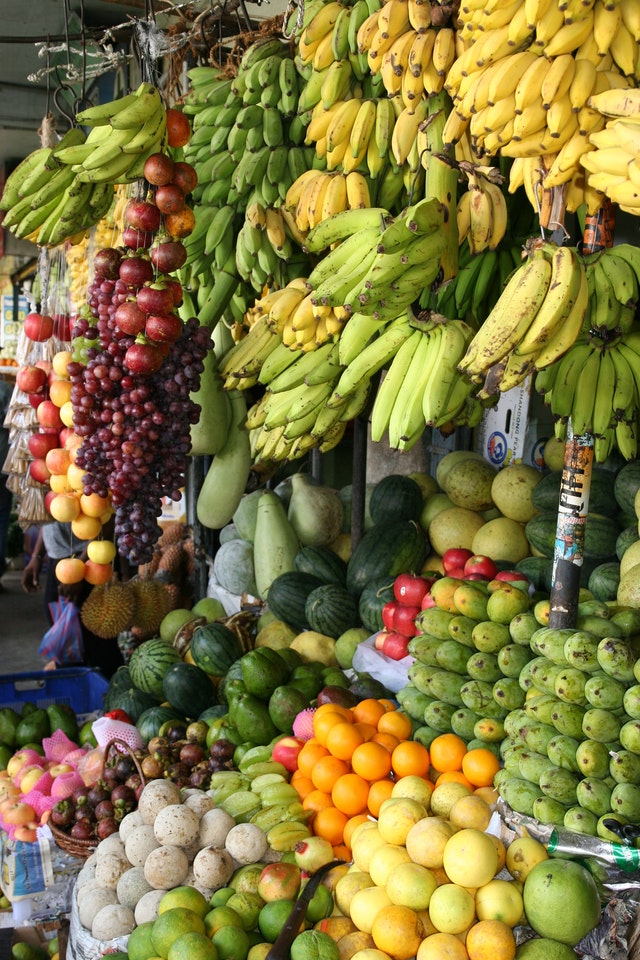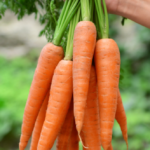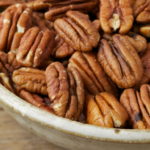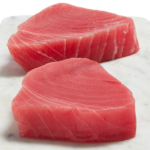As a pet parent, it’s tempting to share your favorite fruits with your furry friend. After all, fruits are packed with vitamins and minerals, and they make for a refreshing snack on a hot summer day. But not all fruits are safe for your pet to consume, and some can even be toxic and cause serious health problems. So, how do you know which fruits are safe and healthy for your furry friend to snack on? In this article, we’ll dive into the world of fruits to help you make informed choices about what to feed your pet. From apples to watermelons, we’ll explore the nutritional benefits and potential risks of various fruits, so you can give your pet a treat that’s both delicious and good for their health. So, let’s get ready for a fruit frenzy and find out if dogs can eat fruits!
Why is it important to know which fruits are safe for your furry friend?
As a responsible pet parent, it’s essential to know which fruits are safe and healthy for your furry friend. Feeding your pet the wrong fruit can lead to serious health problems, such as vomiting, diarrhea, and even organ failure. Some fruits contain toxic compounds that can be harmful or even fatal to your pet, such as grapes, raisins, and avocados.
Moreover, not all fruits are created equal when it comes to nutritional value. Some fruits are high in sugar and can lead to weight gain and diabetes, while others are low in calories and packed with vitamins and minerals that can improve your pet’s overall health. Knowing which fruits are safe and nutritious can help you make informed decisions about what dogs can or can’t eat.
Benefits of feeding fruits to your pets
Feeding your pet fruits has many health benefits, including:
1. Improved digestion
Many fruits are high in fiber, which can aid in digestion and prevent constipation. Fiber also helps regulate blood sugar levels and can reduce the risk of colon cancer in dogs.
2. Boosted immune system
Fruits are rich in antioxidants, such as vitamin C and beta-carotene, which can help strengthen your pet’s immune system and protect them from diseases and infections.
3. Healthy skin and coat
Fruits such as blueberries and strawberries are packed with antioxidants that can help keep your pet’s skin and coat healthy and shiny.
4. Weight management
Some fruits, such as watermelon and cantaloupe, are low in calories and can be a great snack for pets who need to lose weight.
5. Fresh breath
Fruits such as apples and carrots can help freshen your pet’s breath and reduce the risk of dental problems.
List of safe fruits for dogs and cats
Now that we’ve talked about the benefits of feeding fruits to your pets let’s take a look at some of the safe fruits that you can give to your furry friend. Keep in mind that you should always introduce new foods gradually and in small amounts to avoid digestive upset.
1. Apples
Apples are a great source of fiber, vitamin C, and antioxidants. However, you should remove the seeds and core as they contain small amounts of cyanide, which can be toxic to pets.
Bananas are a good source of potassium, vitamin C, and fiber. They are also low in calories and can be a great treat for pets with weight issues. However, bananas are high in sugar, so you should limit their intake to a few slices per day.
3. Blueberries
Blueberries are packed with antioxidants and can help boost your pet’s immune system. They are also low in calories and high in fiber, making them an excellent snack for pets with weight issues.
4. Cantaloupe
Cantaloupe is a great source of vitamins A and C, fiber, and potassium. It is also low in calories and can be a refreshing treat on a hot summer day. However, you should remove the seeds and rind as they can be difficult to digest.
Mango is a good source of vitamins A, C, and E, fiber, and antioxidants. It is also low in calories and can be a great snack for pets with weight issues. However, you should remove the skin and pit as they can be difficult to digest.
Pineapple is rich in vitamin C, fiber, and bromelain, an enzyme that can aid in digestion. However, you should limit your pet’s intake to a few small pieces per day as it is high in sugar.
Strawberries are packed with vitamin C, fiber, and antioxidants. They are also low in calories and can be a great snack for pets with weight issues.
8. Watermelon
Watermelon is a great source of vitamins A, B6, and C, potassium, and lycopene. It is also low in calories and can be a refreshing treat on a hot summer day. However, you should remove the seeds and rind as they can be difficult to digest.
Nutritional value of each fruit
Each fruit has its own unique nutritional profile that can benefit your pet’s health. Here’s a breakdown of the nutritional value of some of the safe fruits for dogs and cats:
1. Apples
Apples are a good source of fiber, vitamin C, and antioxidants. They also contain small amounts of calcium and phosphorus, which are essential for bone health.
2. Bananas
Bananas are a good source of potassium, vitamin C, and fiber. They also contain small amounts of vitamin B6 and magnesium, which can help regulate blood sugar levels and support heart health.
3. Blueberries
Blueberries are packed with antioxidants, such as anthocyanins and vitamin C. They also contain small amounts of fiber, vitamin K, and manganese, which can help improve brain function and prevent inflammation.
4. Cantaloupe
Cantaloupe is a good source of vitamins A and C, fiber, and potassium. It also contains small amounts of folate, which is essential for cell growth and development.
5. Mango
Mango is a good source of vitamins A, C, and E, fiber, and antioxidants. It also contains small amounts of potassium, which can help regulate blood pressure and prevent heart disease.
6. Pineapple
Pineapple is rich in vitamin C, fiber, and bromelain, an enzyme that can aid in digestion. It also contains small amounts of manganese, which can help support bone health and prevent osteoporosis.
7. Strawberries
Strawberries are packed with vitamin C, fiber, and antioxidants. They also contain small amounts of folate, which is essential for cell growth and development.
8. Watermelon
Watermelon is a good source of vitamins A, B6, and C, potassium, and lycopene. It also contains small amounts of magnesium, which can help regulate blood sugar levels and support heart health.
Fruits to avoid feeding to your pets
While some fruits are safe and healthy for your pet, others can be toxic and cause serious health problems. Here’s a list of fruits that you should avoid feeding to your pets:
1. Grapes and raisins
Grapes and raisins can cause kidney failure in dogs and cats. Even a small amount can be toxic and lead to vomiting, diarrhea, and lethargy.
2. Avocado
Avocado contains persin, a compound that can be toxic to pets. It can cause vomiting, diarrhea, and difficulty breathing.
3. Cherries
Cherries contain cyanide, which can be toxic to pets. The pits can also pose a choking hazard and lead to intestinal blockages.
Citrus fruits, such as oranges, lemons, and limes, contain citric acid, which can cause digestive upset and lead to vomiting and diarrhea.
5. Persimmons
Persimmons contain tannins, a compound that can cause digestive upset and lead to vomiting and diarrhea.
How to safely introduce fruits to your pet’s diet
If you want to introduce fruits to your pet’s diet, you should do it gradually and in small amounts. Start by giving your pet a small piece of fruit and observe their reaction. If they tolerate it well, you can gradually increase the amount over time.
It’s also important to choose fruits that are safe and healthy for your pet and avoid those that can be toxic or cause digestive upset. If your pet has a specific health condition, such as diabetes or kidney disease, you should consult with your vet before introducing new foods to their diet.
Homemade fruit-based pet treats
If you’re feeling creative, you can make your own fruit-based pet treats at home. Here’s a simple recipe for a healthy and delicious snack:
Banana and Peanut Butter Bites
Ingredients:
– 1 ripe banana
– 1/4 cup peanut butter
Instructions:
1. Mash the banana in a bowl until smooth.
2. Add peanut butter and mix well.
3. Scoop small spoonfuls of the mixture onto a baking sheet.
4. Freeze for 1-2 hours or until firm.
5. Serve as a refreshing and healthy snack.
Precautions to take while feeding fruits to your pets
While fruits can be a healthy addition to your pet’s diet, there are some precautions you should take to ensure their safety:
1. Remove seeds and pits
Many fruits, such as apples and peaches, contain seeds and pits that can be toxic and pose a choking hazard. Always remove them before feeding fruits to your pet.
2. Wash fruits thoroughly
Fruits can contain pesticides and other harmful chemicals that can be harmful to your pet’s health. Always wash fruits thoroughly before feeding them to your pet.
3. Limit the amount of fruit
Fruits are high in sugar and can lead to weight gain and diabetes if consumed in large amounts. Always limit the amount of fruit you give to your pet and choose low-sugar options.
4. Avoid canned fruits
Canned fruits often contain added sugars and preservatives that can be harmful to your pet’s health. Always choose fresh or frozen fruits instead.
Conclusion – Can dogs eat fruits?
Fruits can be a healthy and delicious addition to your pet’s diet, but it’s important to choose the right ones and feed them in moderation. By following the tips and guidelines in this article, you can ensure that your furry friend gets the best possible nutrition and stays happy and healthy for years to come. So, go ahead and treat your pet to a fruit frenzy, but remember to always put their health and safety first.




